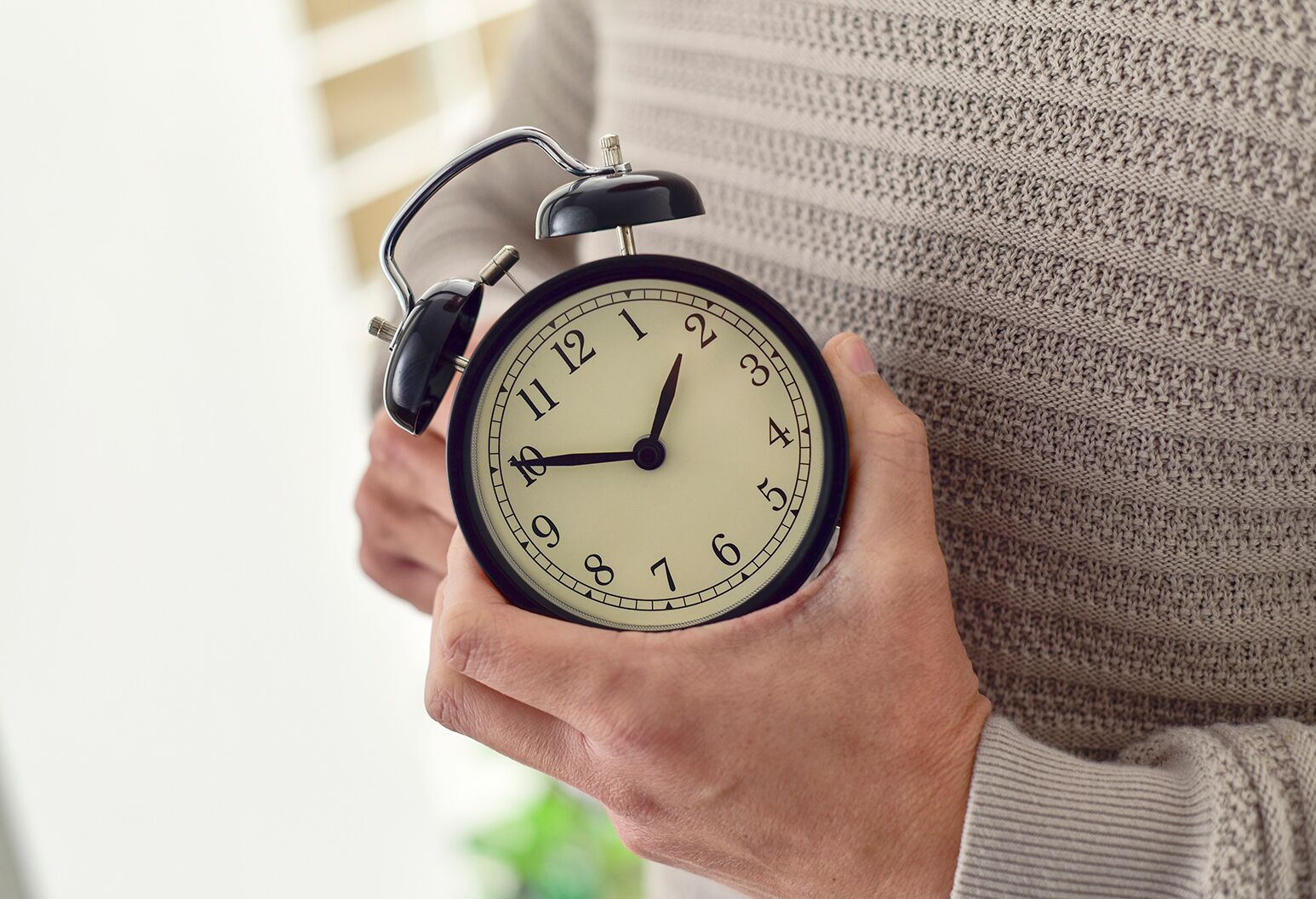sleep
How Sugar Cravings Lead To Poor Sleep

Our sleep medicine specialist explains what happens to your body when we change the clocks. And what you can do about it.
5 min read
For just over a century, most Americans have been setting our clocks an hour forward in the spring and an hour back again in the fall (Hawaii and Alaska are the exceptions). Daylight Saving Time (DST) provides a way to claim an extra hour of sunlight in the warmer months. But these adjustments to our watches, phones, and alarm clocks can wreak havoc on our bodies.
Here’s why you may feel sluggish during the adjustment period and how you can help yourself adapt a little easier.
According to the National Institute of General Medical Sciences, many bodily functions are controlled by our circadian rhythms—the physical, mental, and behavioral changes that follow a daily cycle. Our body’s desire to sleep at night and be awake during the day being the most obvious example.
The master pacemaker of circadian rhythms is found in a part of the brain called the suprachiasmatic nucleus, which generates our body’s rhythms. But there are also cellular clocks throughout the body—in the cardiovascular system, the gastrointestinal system, and so on—that work together to synchronize us with day and night.
Shifting the clock backward or forward disrupts this synchronization, which is why many people feel “jet lagged” for a few days after.
In the spring, we experience a “phase advance.” If you usually go to bed at 10pm, you instead need to go to bed at 9pm that Saturday night to get the same amount of sleep.
This usually means that, for as long as a week after the “spring forward” shift, the average person gets about 15 to 30 minutes less sleep every night. It may not sound like much, but having less sleep, or more fragmented sleep, can affect how you feel and function during the day.
However, even “falling back” can disrupt your sleep. Studies have found that only a minority of people actually get that promised extra hour of sleep that supposedly comes when we set the clocks back and the birds start singing at 6:30am instead of 5:30am. That’s because during that following week, many of us have difficulty falling asleep, wake up earlier, and are more likely to wake up during the night.
Research from the University of Colorado Boulder found a spike in fatal traffic accidents during the six days following the “spring forward” DST shift. The investigators suggested this could be attributed to the combined effects of adjusting to a darker-than-usual morning commute at the same time drivers are experiencing increased sleepiness from the time change. Another study found a jump in workplace injuries on the Mondays following the switch to DST in spring.
But the negative effects aren’t limited to work-related incidents. Changing the clock is associated with an increase in the risk of heart attack and stroke during the days immediately following the switch, according to research. A Finnish study, for example, found that the overall rate of stroke was 8% higher in the two days after a DST transition, after which it returned to normal. Incidents of heart attack are also 24% higher on that first Monday when compared to other Mondays throughout the year. This conforms with what we’ve learned about circadian disruption in night shift workers, who have an increased incidence of various health problems, particularly those related to metabolism, as a result of being out of sync with your inner circadian clock.
There are some groups who are more affected than others. Extreme “chronotypes”— night owls who prefer staying up late, or morning larks who prefer waking up early—seem to be particularly affected by DST.
And while no specific research has been done on the impact of DST on older people, who typically already have other underlying medical conditions, sleep deprived seniors are more prone to accidents like falls and mistakes with medications. Some people have also reported that seniors with dementia experience more “sundowning”—the heightened confusion that often sets in as day turns into night.
How can you reduce your risk of health problems, accidents, or just plain old poor sleep as a result of changing the clocks? Your best option is to plan ahead: For the March shift, start gradually going to bed a little bit earlier, 10 minutes or so, the Sunday before. Each night, hit the hay 10 minutes earlier so that by the following Sunday, you’ll already be acclimated to the change. Do the opposite in the fall by going to bed a bit later each night. And because there is a small increased risk of health events like heart attack or stroke right after the shift, try to de-stress and avoid stressful situations as best you can for a day or two afterward. (Read: Don’t schedule a big, important meeting with your boss for the Monday after DST!)
Since the DST shift affects your body like a mild case of jet lag, it can also help to get out in natural light as much as possible, and to stay well hydrated. But don’t overthink it: The vast majority of people adjust without any issue at all, aside from feeling a little sleepier than usual.
The Well is Northwell Health’s commitment to the future of health care. In this time of information overabundance, much of which is inaccurate, unhelpful, or even difficult to understand, Northwell Health is on a mission to make a difference as an honest, trusted, and caring partner. The site connects with consumers to provide them with personalized content that reduces their stress, makes them laugh, and ultimately feel more confident and capable on their healthcare journey.